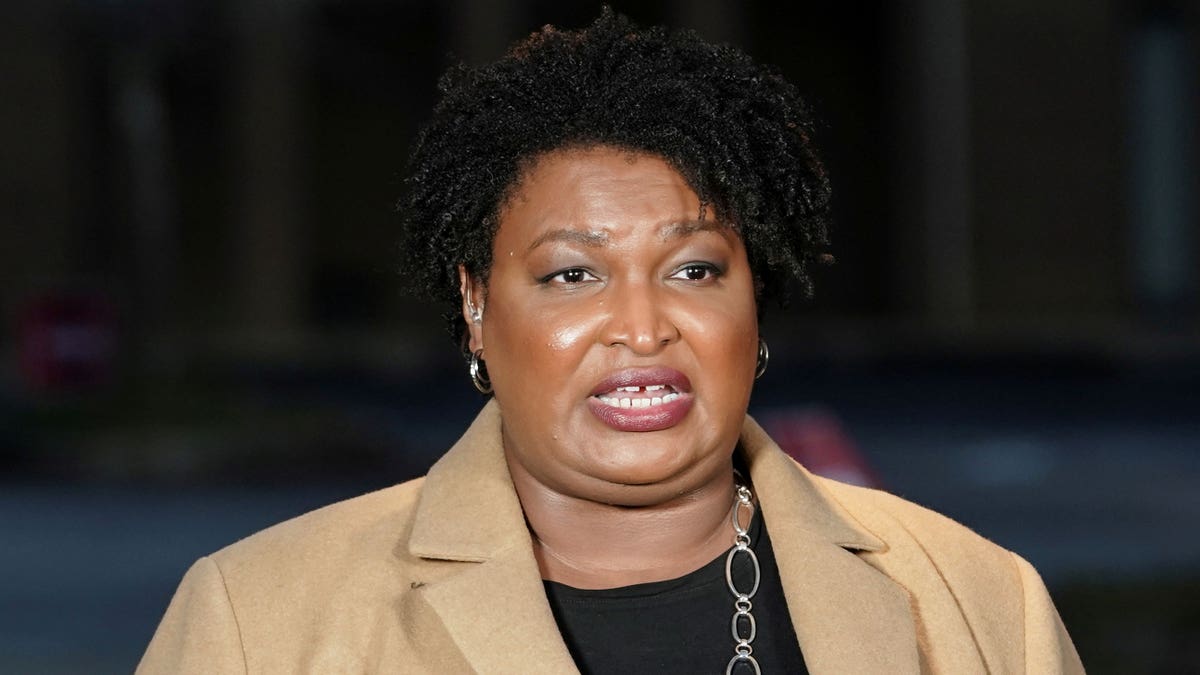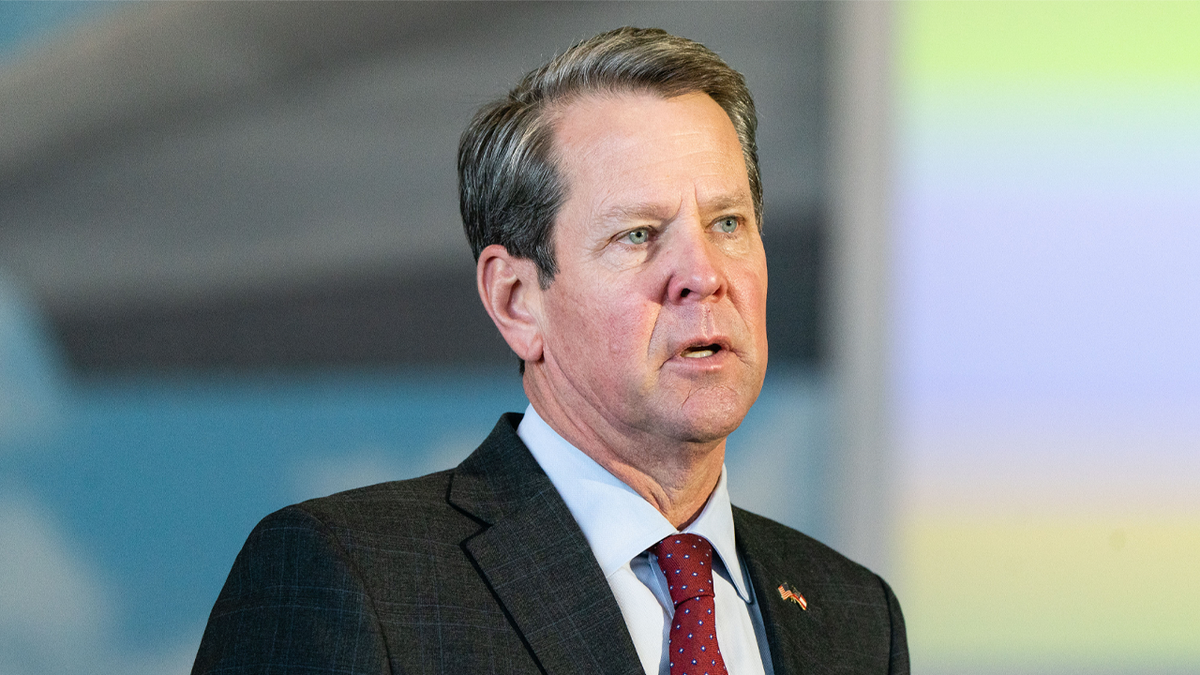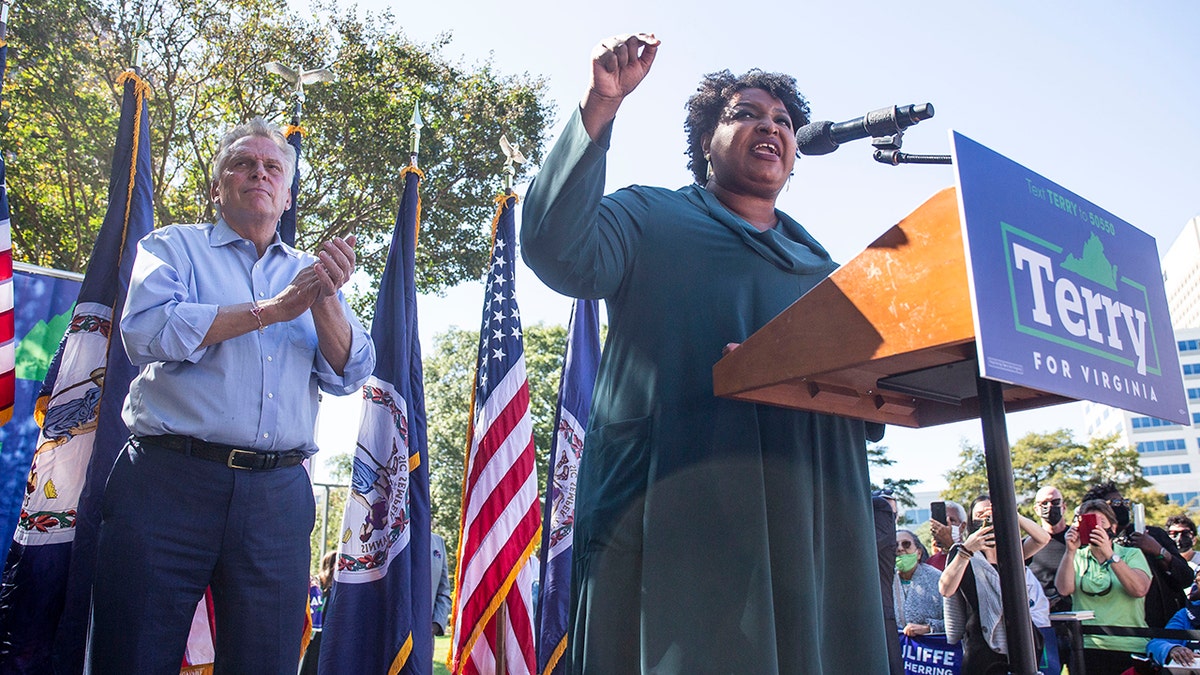Stacey Abrams claims she didn’t challenge 2018 Georgia gubernatorial election results
Democratic activist Stacey Abrams claimed Thursday she didn't challenge the results of the 2018 Georgia gubernatorial election following her loss to current Republican Gov. Brian Kemp.
Democratic gubernatorial candidate Stacey Abrams said Thursday that she didn't challenge the results of the 2018 Georgia governor's race following her loss to current Republican Brian Kemp.
During an appearance on MSNBC's "The Rachel Maddow Show," Abrams said that on Nov. 16, 10 days after that year's election, she "acknowledged" she would not be Georgia's next governor and that Kemp had won the election. However, she refused to officially concede, saying the election was rigged by voter suppression, and even made subsequent claims she was the true winner.
While Abrams did not mount a legal challenge to her defeat after Nov. 16, her group Fair Fight Action filed a lawsuit challenging Georgia election laws in 2019.
Left-wing host Rachel Maddow prefaced the discussion on Abram's past campaign by claiming that Kemp, who was serving as Georgia's secretary of state at the time, engaged in "voter suppression tactics" to benefit his candidacy.
She noted that Abrams had been "contentious" about the loss and claimed it wasn't "a fair fight," before asking her how she thought that such a dynamic had affected the race.
STACEY ABRAMS LAUNCHES 2022 BID FOR GOVERNOR IN GEORGIA

FILE PHOTO: Stacey Abrams speaks to the media about the U.S. Senate runoff elections outside St. Paul's Episcopal Church in Atlanta, Georgia, U.S., January 5, 2021. REUTERS/Elijah Nouvelage/File Photo (REUTERS/Elijah Nouvelage/File Photo)
"On the 16th of November when I acknowledged that I would not become governor, that he had won the election, I did not challenge the outcome of the election unlike some recent folks did," Abrams said, seemingly referring to the legal challenges by former President Trump and Republican allies after his 2020 election defeat. "What I said was that the system was not fair, and leaders challenge systems. Leaders say we can do better. And that's what I declared."
"I could not in good conscience say that in order to protect my political future I’m going to be silent about the political present, which is that we have a system under a leader that sought to keep people from casting their ballot, that threw those ballots out, that said that voter suppression was a viable tactic for winning elections," she added.
STACEY ABRAMS NOW OWNS TWO HOMES TOTALING $1.4M AFTER STARTING 2018 CAMPAIGN IN MASSIVE DEBT
During the 2018 campaign, Kemp had been accused, without evidence, of voter suppression tactics stemming from his duties as secretary of state to manage the elections process, including canceling inactive voter registrations. He maintained, however, that he was fairly applying Georgia law when it came to voter issues amid calls for his resignation. During his tenure, voter registration and turnout surged in Georgia, which now has two Democratic U.S. Senators for the first time in decades.

Brian Kemp, governor of Georgia, speaks during a news conference at a mass covid-19 vaccination site at the Delta Flight Museum in Hapeville, Georgia, U.S., on Wednesday, Feb. 25, 2021. Delta Air Lines Inc. partnered with Georgia to host the state's largest COVID-19 vaccination site. Photographer: Elijah Nouvelage/Bloomberg via Getty Images (Elijah Nouvelage/Bloomberg via Getty Images)
"Concession means to acknowledge an action is right, true, or proper," Abrams told the crowd on Nov. 16, 2018, after it became clear she wouldn't force Kemp into a runoff. "As a woman of conscience and faith, I cannot concede. But my assessment is that the law currently allows no further viable remedy."
A number of media outlets noted Abram's refusal to concede the election at the time, including The New Yorker, which wrote a piece with the headline: "Stacey Abrams Ends Her Race for Governor of Georgia, but Doesn’t Quite Concede."
BURT JONES: ATLANTA BRAVES DELIVER POETIC JUSTICE TO STACEY ABRAMS AND DEMOCRATS
As Abrams continued railing against Kemp and her loss in the months following the election, other outlets continued reporting on her refusal to concede. Yahoo! News wrote a piece headlined: "Why Stacey Abrams still won’t concede," while The New York Times published an interview that included Abrams claiming she actually won the election, but just didn't get to have the job.
"I legally acknowledge that Brian Kemp secured a sufficient number of votes under our existing system to become the governor of Georgia. I do not concede that the process was proper, nor do I condone that process," she said in the April 2019 interview.

NORFOLK, VA - OCTOBER 17: Former US Representative and voting rights activist Stacey Abrams speaks during a Souls to the Polls rally supporting Former Virginia Gov. Terry McAuliffe on October 17, 2021 in Norfolk, Virginia. Virginia will hold gubernatorial and local elections on November 2. (Photo by Zach Gibson/Getty Images) (Photo by Zach Gibson/Getty Images)
CLICK HERE TO GET THE FOX NEWS APP
"Concession means to say that the process was fair, but when I run an organization that in 10 days between election night and the night I refuse to concede we receive more than 50,000 phone calls for people who were denied the right to vote I am complicit if I say that that system is fair," Abrams told "CBS This Morning" later that same year.
Abrams, who has spoken openly about her White House ambitions, announced this week she would again run for governor of Georgia in the 2022 election.










































